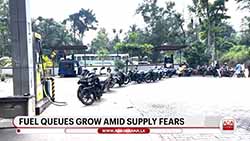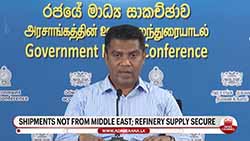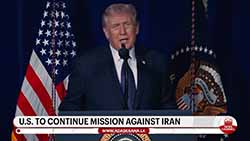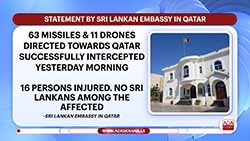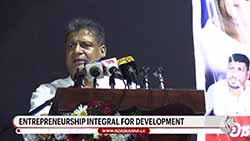China and India competing over Sri Lanka: Report
June 29, 2010 04:16 pm
Although a visit to India should have helped him (President Mahinda Rajapaksa) demonstrate India’s backing for his government, Sri Lanka is rapidly slipping out of India’s orbit, states Harsh V. Pant, writing for The Japan Times.
LONDON: The recent visit of Sri Lankan President Mahinda Rajapaksa to New Delhi appeared successful. India and Sri Lanka signed a range of agreements including loans for major infrastructure projects, sharing of electricity and cultural exchanges. India has extended a $200 million credit line to assist in setting up the NTPC-CEB Joint Venture thermal power plant (500 MW) at Trincomalee.
The two nations decided to set up an annual defense dialogue and increase high-level military exchanges. A treaty on mutual legal assistance in criminal matters and an understanding on sentenced prisoners were agreed upon.
And India has agreed to construct a rail link between Talaimannar and Madhu in Sri Lanka’s Northern Province.
In the southern Indian states, especially in Tamil Nadu, anger at the Rajapaksa government for its conduct during the war with the Liberation Tigers of Tamil Eelam (LTTE) remains high. Just recently, pro-LTTE activists blasted a railway track in Tamil Nadu, and pamphlets condemning Rajapaksa’s visit to India were found at the blast site.
A delegation of Indian members of Parliament from Tamil Nadu met Rajapaksa regarding the delay in rehabilitating Sri Lankan Tamils displaced by the civil war. The president acknowledged the delay and suggested that those staying in relief camps will be resettled within three months.
The political parties in Tamil Nadu might be tempted to play the Sri Lankan Tamil card with an eye toward state elections in a year’s time, even though the issue resonated little in the Lok Sabha elections last year. Indian Prime Minister Manmohan Singh underscored the need for a meaningful devolution package that would build on the 13th Amendment to create the necessary conditions for a lasting political settlement. Rajapaksa, however, was largely noncommittal on this.
The Sri Lankan president is at the height of his power after having defeated LTTE and winning an overwhelming mandate for himself and his party. Yet his government’s human rights record is under critical scrutiny in the West. Although a visit to India should have helped him demonstrate India’s backing for his government, Sri Lanka is rapidly slipping out of India’s orbit.
India failed to exert its leverage in the humanitarian troubles involving Tamils trapped in the fighting. New Delhi’s attempts to end the war and avert humanitarian tragedy in North-East Sri Lanka proved utterly futile.
After following India’s lead in international affairs, even demanding that the British vacate their naval base at Trincomalee and their air base at Katunayake in 1957, Colombo gravitated toward a more independent foreign policy posture. But after China’s victory in its 1962 war with India, Colombo seriously started courting Beijing.
Today, China has displaced Japan as Sri Lanka’s major aid donor with an annual aid package of $1 billion. Trade between China and Sri Lanka has doubled over the past five years with China emerging as Sri Lanka’s largest trading partner. China is now supplying more than half of all Sri Lanka’s construction and development loans. Chinese investment in the development of infrastructure and oil exploration projects in Sri Lanka has also gathered momentum.
China is providing interest-free loans and preferential loans at subsidized rates to Sri Lanka for the development of infrastructure. It is the first foreign country to have an exclusive economic zone in Sri Lanka and is involved in a range of infrastructure development projects — power plant construction, modernization of Sri Lankan railways, and financial and technical assistance in launching communication satellites.
China is financing more than 85 percent of the Hambantota Development Zone to be completed over the next decade. This will include an international container port, a bunkering system, an oil refinery, an international airport and other facilities. The port in Hambantota, deeper than the one at Colombo, will be used as a refueling and docking station for its navy.
Though the two sides claim that this is merely a commercial venture, its future utility as a strategic asset by China to enhance intelligence-gathering capabilities vis-a-vis India remains a real possibility. India has expressed its displeasure over growing Chinese involvement in Sri Lanka on a number of occasions. In 2007, India’s then national security adviser criticized Sri Lanka for seeking to purchase a Chinese-built radar system, on the grounds that the system would “overreach” into Indian air space.
To counter Chinese influence, India has stepped up its offensive with offers of reconstruction aid. But where New Delhi must continue to balance domestic sensitivities and strategic interests, Beijing faces no such constraints.
The “great game” of this century will be played on the waters of the Indian Ocean. Though India’s location gives it great operational advantages, it is by no means certain that New Delhi can keep them.







